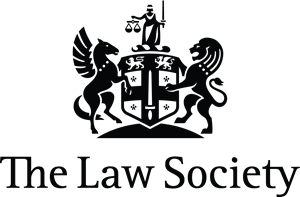The administration and allocation of a deceased person’s estate in accordance with Sharia law is known as probate in Islamic law. This procedure guarantees that the desires of the deceased, as expressed in their wasiyyah (will), are respected while following the inheritance laws specified in the Quran and Hadith. Understanding the Islamic probate process and its religious significance is crucial to ensuring this alignment.
Recognition of the Will (Wasiyyah): A valid will is an essential part of the probate procedure in Islamic law. It enables the departed to express their desires for how their possessions should be divided. Although it is not required, drafting a will is strongly advised as it is a crucial document in the probate procedure.
Distribution According to Sharia: Fixed shares specified in the Quran, namely in Surah An-Nisa (Chapter 4), control the allocation of an estate in Islamic probate. According to their relationship to the deceased, these shares outline the percentages of the estate that each successor is entitled to receive. How Islamic probate ensures fair distribution of estate assets in accordance with Sharia is a crucial component of this process.
Protection of Rights: The purpose of Islamic probate is to safeguard each beneficiary’s and heir’s rights. In accordance with Islamic law, the probate procedure is intended to avoid family conflicts and guarantee that each person gets their due portion.
Emphasis on Fairness and Justice: Islamic probate is based on the fundamental ideas of justice and fairness. By treating each successor fairly, the procedure seeks to respect the rights of the living while honouring the wishes of the departed. Understanding the Islamic probate process and its religious significance highlights the importance of this fairness.
Fulfilling Religious Obligations: Fulfilling religious responsibilities is one of the main motivations for probate under Islamic law. The significance of distributing the deceased’s estate in accordance with divine instruction is emphasised in the Quran. Heirs can fulfil their religious obligations and pay respect to the departed by following the guidelines of Islamic probate.
Clarity and Certainty: The allocation of assets is made clear by the probate process. A well-prepared will eliminates uncertainty about succession and makes clear the intentions of the deceased. This reduces the likelihood of arguments, which is especially crucial in households where relationships may be tense or complex.
Legal Protection: The purpose of the probate procedure is to legally safeguard heirs’ rights. Heirs can make sure that the estate is handled properly and that their interests are protected by going through probate. Family disputes and miscommunications over asset distribution are less likely because of this legal structure.
Facilitating the Administration of the Estate: The administration of the deceased’s estate can be done in an organised manner through probate. It creates a legal framework for handling the estate’s assets and obligations and specifies the duties of the executor (wasi). In situations where the deceased may have left behind debts or other commitments, this is especially crucial.
Transparency: The allocation of assets is made more transparent through the probate process. Every action made during probate is recorded and available for the beneficiaries and heirs to review. This openness lessens the possibility of disagreements once the estate is handled and builds trust among family members.
Initiation of Probate: The deceased usually appoints an executor (wasi) to start the probate process. In accordance with Islamic law, the executor is in charge of overseeing the estate, paying off any debts, and making sure that assets are distributed appropriately.
Validation of the Will: Verifying the will is the first step in probate if there is a wasiyyah. This involves looking over the document to make sure it has been properly executed and complies with Islamic values. Disagreements at probate may result from a will that is declared void due to noncompliance with Sharia law.
Identification of Heirs: Finding the deceased person’s heirs is the next step. This is important because, according to Islamic law, each heir must get a certain percentage depending on their relationship to the deceased. During the distribution procedure, the executor is responsible for making sure that all eligible heirs are included. How Islamic probate ensures fair distribution of estate assets in accordance with Sharia becomes vital during this stage.
Payment of Debts and Liabilities: The executor must pay off the deceased’s debts and liabilities before allocating the estate. This is a crucial step in making sure that creditors’ rights are upheld, and the estate is managed equally.
Distribution of Assets: The executor can then divide the remaining assets among the heirs in accordance with the specified shares after debts have been paid off. This procedure ought to be conducted openly and in conformity with the fairness and justice mentioned in Islamic law.
Final Settlement: Giving the heirs a thorough explanation of the estate’s management is the last phase in the probate process. This might include proving debt repayment and recording the allocation of assets. In order to keep family members’ trust, this last stage must be transparent.
Islamic law’s probate procedure is intended to be fair and equal, yet it is not without difficulties:
Cultural Variations: Conflicts could arise during probate because different cultures may understand Islamic law differently. People must be aware of cultural variations that could influence how assets are distributed.
Complex Family Dynamics: Probate procedures can be complicated by family dynamics, particularly when there are difficult ties. Sensitivity and, in certain cases, mediation are necessary to navigate these complications and guarantee that each heir’s rights are upheld.
Lack of Awareness: It’s possible that many Muslims are unaware of the significance of having a will or the probate procedure. In order to motivate people to participate in estate planning and guarantee that their desires are respected, education and awareness initiatives are crucial.
Legal Framework: Islamic probate may not be fully recognised by the legal system in some jurisdictions, which could cause issues when allocating assets. To guarantee adherence to both local laws and Islamic law, people ought to seek legal counsel.
Changing Circumstances: As life circumstances change, it may be necessary to revise a previous will or probate provisions. To make sure estate planning documents stay up-to-date it is crucial to examine them on a regular basis.
Changing your name is a significant decision, and it’s important to ensure that the process is handled legally and efficiently. Whether you are opting for an enrolled or unenrolled Deed Poll, the team at Adam Bernard Solicitors is dedicated to providing expert legal support and guidance throughout your name change journey. We are committed to making the process as straightforward and stress-free as possible for our clients.
If you are considering a name change or need further information about the legal process for changing your name via deed poll, contact Adam Bernard Solicitors today for professional assistance and peace of mind.
Copyright © 2025 Adam Bernard Solicitors. This Firm is Authorised & Regulated by the Solicitors Regulation Authority SRA NO: 598171, 656730.





